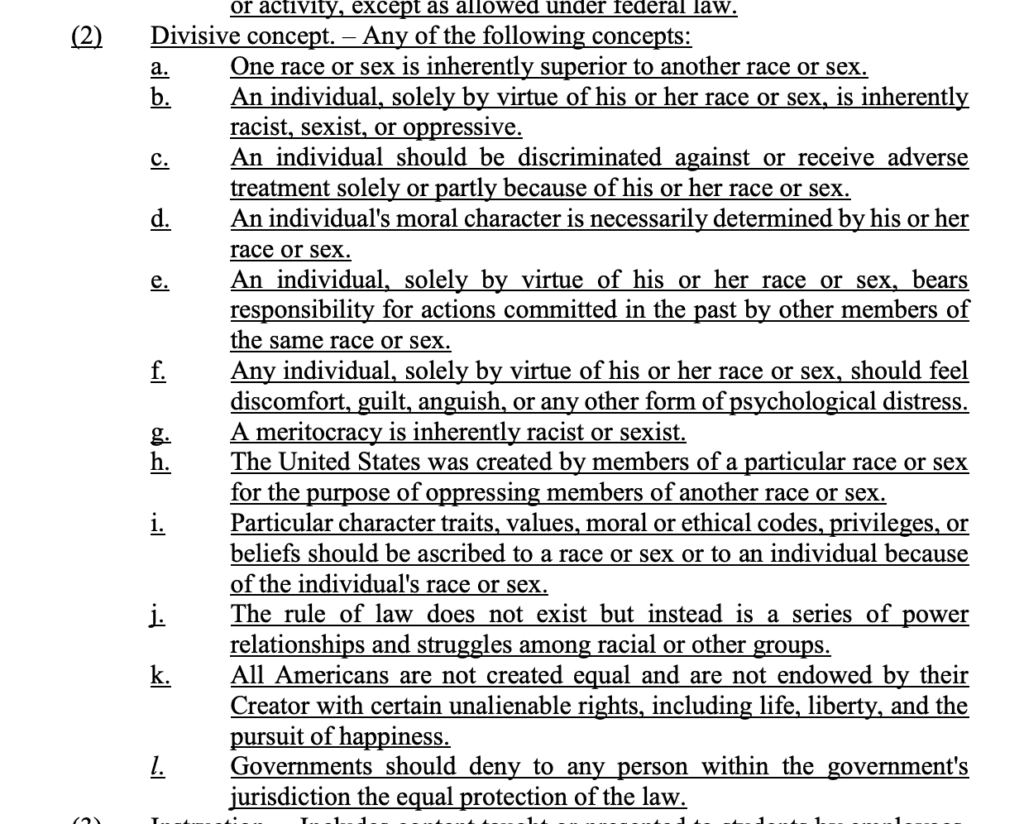State Superintendent Mo Green sent a letter to the U.S. Department of Education on Tuesday questioning the department’s authority to require schools to not use diversity, equity, and inclusion (DEI) programs in order to continue receiving federal funds.
The letter follows the department’s April 3 requirement that K-12 school districts and state departments of education certify compliance with federal civil rights law within 10 days to receive federal dollars. That deadline was later extended to April 24.
Notice: JavaScript is required for this content.
DPI, along with all 115 North Carolina districts, has completed that certification, Green said in the letter, but based only on what is currently legally required under Title VI of the Civil Rights Act. While the Republican administration of President Donald Trump has interpreted that act to prohibit DEI, Green, a Democrat, said in the letter that North Carolina leaders disagree.
“Your request for certification makes broad statements about ‘diversity, equity, and inclusion’ without defining what specific practices might violate Title VI or other laws,” Green said. “This ambiguity raises concerns about providing the requested certification without important clarifications.”
“Since the U.S. Department of Education does not have the legal authority to change assurances and impose new requirements on recipients without adhering to rulemaking procedures (see 20 USC § 1232) or make unilateral changes to Title VI or its applicable case law, it is logical to conclude that the signed certifications can only be enforceable to the extent of the Department’s lawful authority and the law as it exists at the time the assurances are given,” Green said in the letter, which includes Democrats Gov. Josh Stein and Attorney General Jeff Jackson, and the North Carolina State Board of Education.
Title VI of the Civil Rights Act of 1964 says that “[n]o person in the United States shall, on the ground of race, color, or national origin, be excluded from participation in, be denied the benefits of, or be subjected to discrimination under any program or activity receiving Federal financial assistance.”
Since Trump’s inauguration, his administration has interpreted this law to prohibit DEI and ban the consideration of race in schools and colleges.
On Thursday afternoon, The New York Times reported that a federal judge in New Hampshire limited the Trump administration’s ability to withhold federal funds from public schools with certain DEI initiatives.
The judge, Landya B. McCafferty, said the administration had not given an adequate definition of DEI and that the policy surpassed the executive branch’s legal authority over local schools.
McCafferty did not issue a nationwide pause on the policy, according to the Times report. Her ruling was limited to schools that employ or contract with at least one member of the two groups that brought the lawsuit: the National Education Association, the nation’s largest teachers’ union, and the Center for Black Educator Development, a nonprofit that recruits and train Black teachers.
The Department of Education’s certification letter sent to states and districts says that “any violation of Title VI — including the use of Diversity, Equity, & Inclusion (‘DEI’) programs to advantage one’s race over another — is impermissible. The use of certain DEI practices can violate federal law. The continued use of illegal DEI practices may subject the individual or entity using such practices to serious consequences.”
Those consequences, according to the certification letter, include:
- Loss of federal funding,
- Litigation for breach of contract,
- Recovery of previously received funds, and
- Possible treble damages and civil penalties the department says it may seek through the federal False Claims Act.
As EdNC previously reported, signing the certification could be interpreted as tacit agreement with the department’s interpretation of case law.
Green disagrees. In the letter sent to the Department this week, he said that while North Carolina “remains committed to ensuring our public schools provide environments free from discrimination based on race, color, or national origin,” the state “will continue working to ensure fairness, remove barriers to opportunity, and make decisions based on merit and need.”
“Public education is about opening doors, not closing them. Every decision we strive to make, whether about discipline, curriculum, hiring, or resource allocation–is grounded in fairness, providing access to equal opportunity, and is made in the best interests of all public school students,” he said. “We look forward to working with you and your colleagues at the U.S.
Department of Education to do the great and important work of educating the children in our public schools.”
You can read the full letter from Green here.
More on DEI
During the 2024-25 school year, North Carolina public schools received $1.1 billion in federal funding, excluding child nutrition and the last of federal relief funds.
Statewide, federal funding accounts for approximately 10-15% of most district’s annual budgets.
In March, the Department of Education terminated more than $600 million in federal grants to train teachers, saying the training programs promoted DEI. That funding included tens of millions of dollars to North Carolina public schools, the News & Observer reported.
It is not clear how or when the department will confirm that school district certifications are satisfactory, but regardless, it is possible that future funding cuts are coming.
“Federal financial assistance is a privilege, not a right,” Acting Assistant Secretary for Civil Rights Craig Trainor said in the April 3 press release. “When state education commissioners accept federal funds, they agree to abide by federal antidiscrimination requirements. Unfortunately, we have seen too many schools flout or outright violate these obligations, including by using DEI programs to discriminate against one group of Americans to favor another based on identity characteristics in clear violation of Title VI.”
The department has also created an “End DEI” portal that allows members of the public “to report illegal discriminatory practices at institutions of learning.” According to the department, this will “ensure all students have access to meaningful learning free of divisive ideologies and indoctrination.”
“This submission form is an outlet for students, parents, teachers, and the broader community to report illegal discriminatory practices at institutions of learning,” the website says. “The Department of Education will utilize community submissions to identify potential areas for investigation.”
As North Carolina schools navigate shifting federal guidance and requirements, state lawmakers are also looking to ban DEI across the education continuum.
Senate Bill 227 would bar public schools from engaging in “discriminatory practices” or teaching “divisive concepts” to students. Here is how the bill defines such practices:

Senate Bill 558 is a similar bill for institutions of higher education. SB 558 says public institutions of higher education “shall not do any of the following:”
- Engage in or advocate for discriminatory practices.
- Compel students, professors, administrators, or other employees to affirm or profess belief in divisive concepts.
- Endorse divisive concepts.
- Maintain an office, division, or other unit (i) promoting discriminatory practices or divisive concepts or (ii) referred to as or named diversity, equity, and inclusion.
- Employ or assign an employee whose duties for a public institution of higher education include promoting discriminatory practices or divisive concepts.
- Require completion of a course related to divisive concepts for purposes of awarding a degree or completion of a program.
Both bills have passed through the Senate and have been referred to the House.
House Bill 171, introduced in February, would eliminate DEI in state and local agencies and prevent public funds from going to DEI initiatives or programs.
